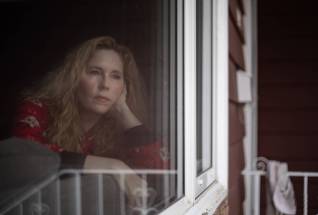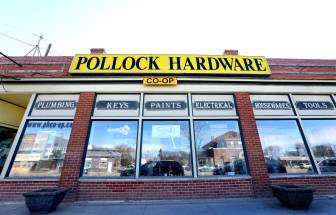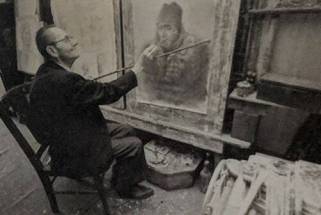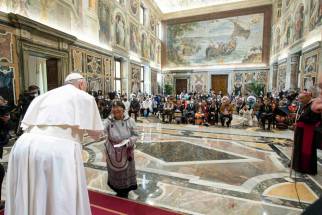Aches, anxiety… and aggravation Premier Heather Stefanson’s ‘new normal’ is a miserable place for Manitobans who dutifully followed public-health rules and stayed healthy until the province declared it was time to get on with our lives
Read this article for free:
or
Already have an account? Log in here »
To continue reading, please subscribe:
Monthly Digital Subscription
$0 for the first 4 weeks*
- Enjoy unlimited reading on winnipegfreepress.com
- Read the E-Edition, our digital replica newspaper
- Access News Break, our award-winning app
- Play interactive puzzles
*No charge for 4 weeks then price increases to the regular rate of $19.00 plus GST every four weeks. Offer available to new and qualified returning subscribers only. Cancel any time.
Monthly Digital Subscription
$4.75/week*
- Enjoy unlimited reading on winnipegfreepress.com
- Read the E-Edition, our digital replica newspaper
- Access News Break, our award-winning app
- Play interactive puzzles
*Billed as $19 plus GST every four weeks. Cancel any time.
To continue reading, please subscribe:
Add Free Press access to your Brandon Sun subscription for only an additional
$1 for the first 4 weeks*
*Your next subscription payment will increase by $1.00 and you will be charged $16.99 plus GST for four weeks. After four weeks, your payment will increase to $23.99 plus GST every four weeks.
Read unlimited articles for free today:
or
Already have an account? Log in here »
Hey there, time traveller!
This article was published 01/04/2022 (1348 days ago), so information in it may no longer be current.
“It seems everyone has COVID right now.”
If you’ve heard that repeatedly in the last few weeks, you might think we’re in the middle of another pandemic wave, just three months after the Omicron variant ripped through the province.
This time around, however, Manitobans won’t benefit from information that could help them gauge their COVID-19 vulnerability.
The pandemic dashboard that reported hospital admissions, test-positivity and death rates — and was updated five days a week — has been erased from the provincial government’s website. It has been replaced by a weekly online update providing week-old data.
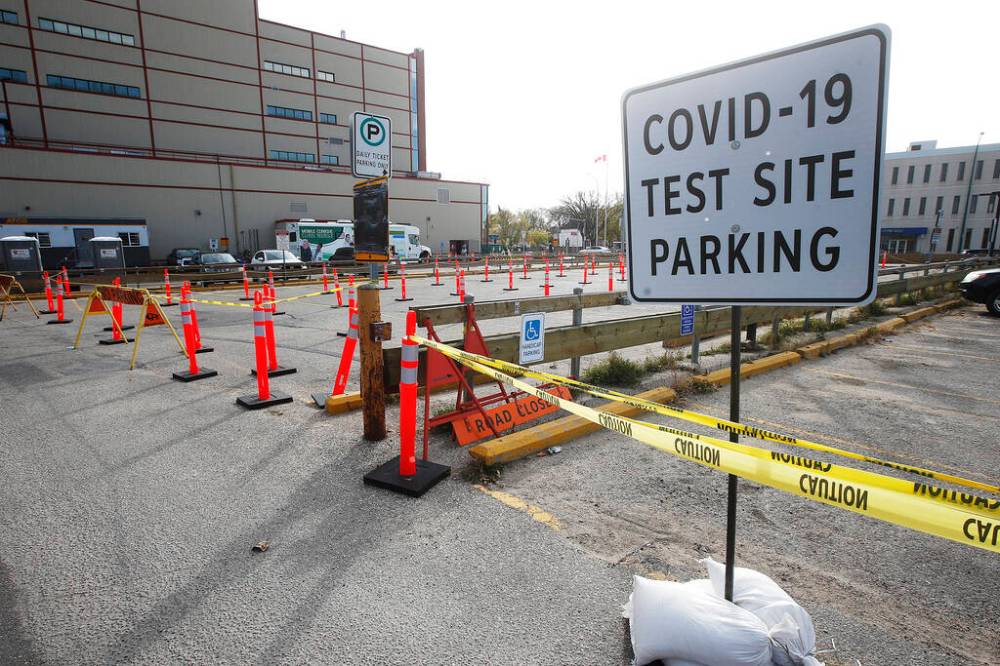
Gone, too, are public screening sites, mandatory masks and isolation rules for those who test positive.
For weeks, the government has been mostly silent on the COVID file.
On Friday, at a news conference unrelated to COVID-19, Health Minister Audrey Gordon was pressed on the province’s pandemic response. She said Manitobans are free to take the risks they consider worthwhile or add protective measures where warranted.
“The virus is still out there,” Gordon said. “I don’t know that we’ll ever be virus-free.”
However, she insisted the virus remains on a downward trajectory in the province, based on data provided to her but not made available to the public.
“It’s time for a new normal to begin in Manitoba,” Premier Heather Stefanson said in February, announcing all pandemic public-health orders would end in March. “We need to end the divisiveness between families, between communities. We need to move forward.”
That “new normal” appears to mean that Manitobans must fend for themselves.
In an effort to shine a light on what may be the next COVID wave unfolding here, the Free Press spoke to 10 Manitobans who have recently been infected with the virus for the first time.
Here are their stories.
Jennifer Hanson went to go see the Watchmen perform at Club Regent Event Centre on Saturday night. By Monday morning, the Winnipeg vocalist was sneezing and had a runny nose, which she chalked up to seasonal allergies.
“I really didn’t think I had COVID,” she said.
But Hanson, 53, felt progressively worse as the day wore on, and a rapid antigen test on Tuesday morning confirmed it — she has COVID-19 for the first time and figures she got it at the concert.
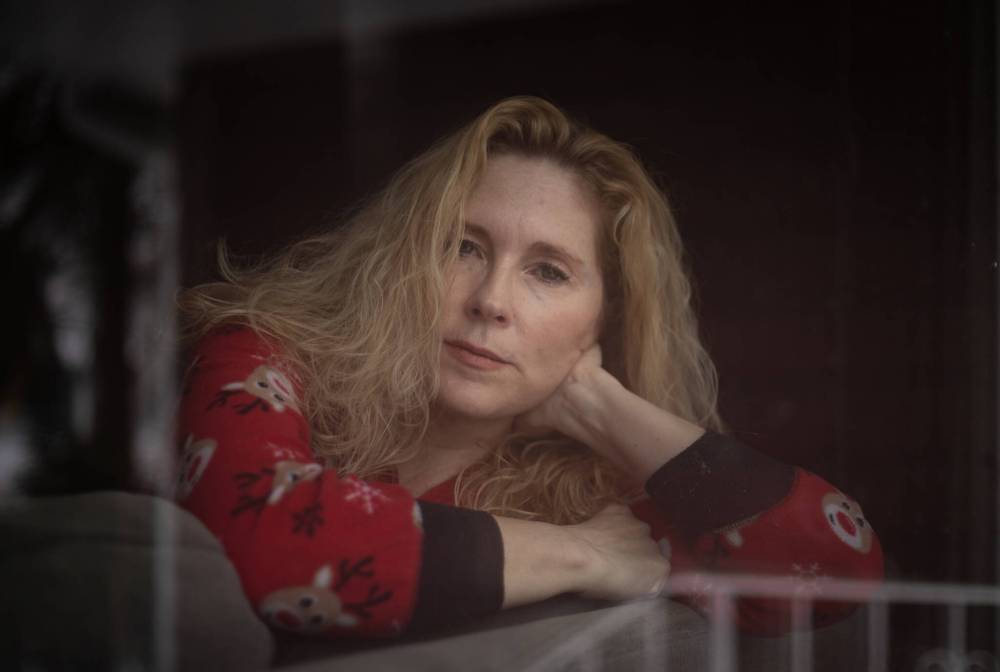
“I kept my mask on for, like, three-quarters of (the show) but there was probably 20 or 30 minutes where I had my mask off,” she said Tuesday afternoon, her congestion audible over the phone. “I thought I was being so careful. But there were maybe 10 people in that whole place wearing masks.”
Hanson, who is triple-vaccinated, says her immunized kids also got COVID-19 for the first time within the last two weeks. She believes the provincial government should not have lifted the mask mandate.
“I’m totally upset with the province,” said Hanson, who was a frequent anthem singer during the Winnipeg Jets 1.0 era.
“If we’re on our own now, then make it possible for us to know if we’re sick or not.”– Jennifer Hanson
“I haven’t had a frickin’ cold in two years. It’s been amazing. And as a singer, we always get sick. (Singers) always pick up everybody’s crap because our throats are usually a bit raw. So, I was one of those people that felt pretty worried about getting it. I’ve been very careful. I wear my mask everywhere. And the one place I didn’t wear it, I was with a friend, and this morning I had to be like, ‘Girlfriend, I just breathed all over you and I got COVID. And I feel horrible.’”
Indeed, Hanson feels anxiety about making someone else sick.
“She’s also triple-vaccinated,” she said of her friend, “but what if she’s one of those people that has a terrible reaction? I don’t know how people bear the burden of making other people sick. It’s awful.”
She said her experience serves as a reminder that the pandemic is not over.
“I knew that COVID was not finished with us. But I think the part that’s so dangerous is that we go into this magical fairy land of, ‘Oh, the mask mandate is lifted, so let’s all party like it’s 1999’ — and then have hangovers like it’s 1999.”
Hanson said it was difficult to find rapid tests in the city. Before she got sick, she she went to 10 different places to find tests to have on hand and came up empty handed. Her daughter’s boyfriend was finally able to get some from a library.
“That’s a bit depressing,” she said. “If we’re on our own now, then make it possible for us to know if we’re sick or not.”
— Jen Zoratti
•••
Benjamin Tuesday plans to keep a mask on hand indefinitely, be it fitted around his face during an interaction with a stranger or stuffed into a back pocket in preparation for a public outing.
“Why not?” the 21-year-old Winnipegger asked rhetorically during a call from his apartment, where he’s serving out a self-imposed quarantine this week.
“I’m hoping that there will be a bit of a culture change (after the pandemic), where suddenly we’ll care about how we spread germs a little bit more. It’s so easy to have a mask on.”
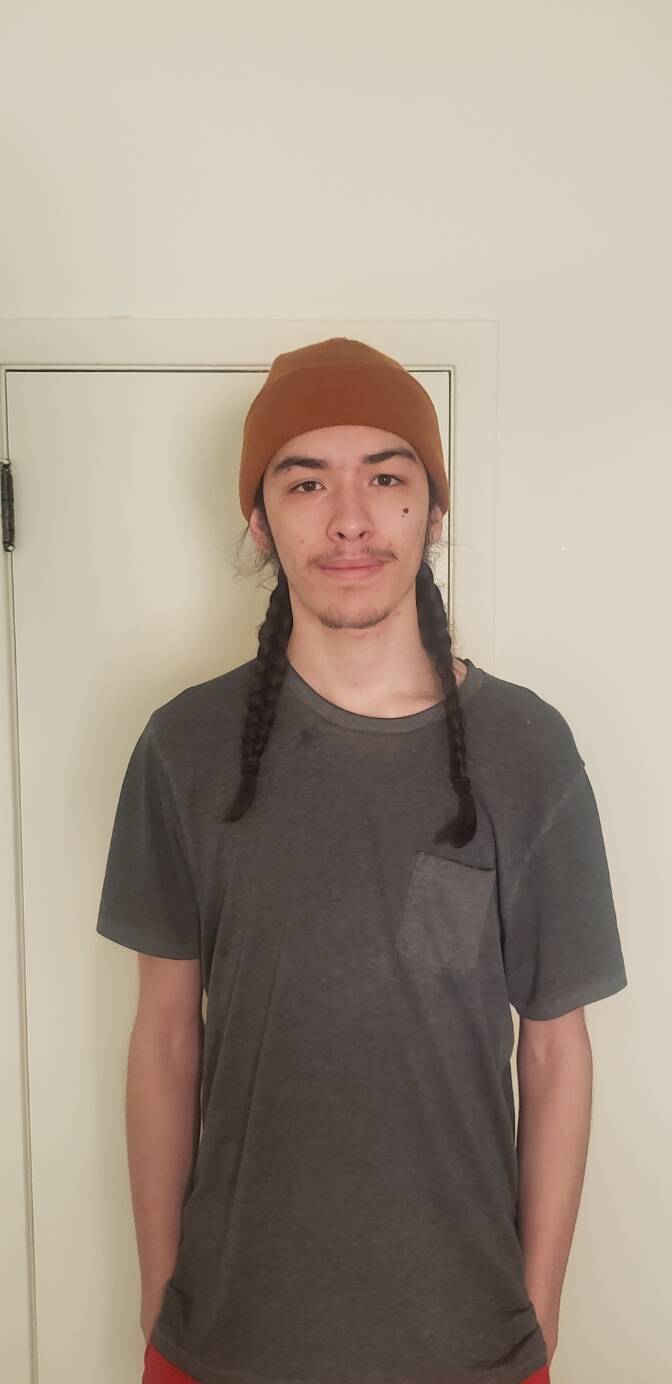
Tuesday attributes widespread masking to the reason he hadn’t been ill since the pandemic began. But the healthy streak came to an end Monday, when he tested positive for COVID-19.
Several days earlier, Tuesday attended a crowded concert downtown with upwards of 100 people in attendance. It was the first live show Tuesday had seen in a while; although he said he’s been diligent about mask-wearing, most concertgoers’ conscientiousness waned as their bar tabs grew.
He said he has since experienced cold-like symptoms, including a fever, muscle aches and a loss of appetite. He was bedridden during the worst of it.
“I was very seriously sick. If I didn’t have my partner, I can absolutely imagine calling the hospital. I can’t imagine living alone and getting as sick as I was,” said Tuesday, who is triple-vaccinated.
A friend, who was at the show with him, has also tested positive.
Tuesday, who has spent the better part of this week watching classic movies, playing video games and taking naps, said he has felt immense gratitude for the protection provided by immunizations.
He recently got his booster shot and said he wishes he’d done it sooner.
As Manitoba forges a “new normal,” Tuesday said he continues to trust the province’s direction regarding restrictions and mandates.
“If they think we can ease regulations, then I’m going to just trust that and hope they have my best interest in mind,” he said.
Self-isolation is recommended rather than required now that virtually all public-health measures have disappeared. Tuesday, however, said he is staying put for now and looking forward to breathing fresh air again this weekend.
“I don’t want anyone to get as sick as I was,” he said.
— Maggie Macintosh
As a precaution, Zach Fleisher tested himself for COVID-19 before meeting a friend for a beer Saturday night.
“I felt a bit of a sniffle in my nose and I figured it’s probably allergies, with the spring melt and everything,” said Fleisher, a 29-year-old father of one who works in research and communications.
“(The test) came back, like, aggressively positive in the first minute.”
A short time later, Fleisher’s symptoms hit him “like a pile of bricks.” He’s got brain fog, body aches and he’s spent most of his time resting.
His partner and young son have both tested negative, and they’re staying elsewhere while he isolates at home.

“My kid can’t get vaccinated, and I was really frustrated with the provincial government where they kind of set this arbitrary date to end restrictions, when we didn’t have a good sense of where we were at,” said Fleisher, who is triple-vaccinated.
He’s critical of the government’s decision to cut the amount of data released to the public, especially in tandem with scrapping restrictions.
“If you’re going to make the decision that we’re going to put this up to people’s individual choices, I think that you have to provide them with almost a gluttony of information. Instead, (they’ve) done the complete and utter opposite. I feel that Manitobans are really, really in the dark, and everyone is having to make their own risk assessments,” he said.
He feels guilty about testing positive, even though so many people have caught the virus.
“There is that sense of dread. I think it’s because we’ve been so tuned to think about our behaviour individually, as opposed to our collective response to this,” he said.
“You feel that individual guilt in a big way, and I don’t think that that’s fair to ascribe that to you. No one reasonable wants to go out and get this virus — it sucks. But I think it is ultimately a public policy failure to not take steps to contain it.”
— Malak Abas
Matthew Sunstrum, 42, spent his COVID-19 isolation period sequestered in his St. Andrews basement.
He was equipped with all of the creature comforts to make it through, including a hide-a-bed, fridge and video-game system. Sunstrum’s wife made regular supply drops; both put on masks, and Sunstrum positioned himself in the far corner of the basement while she passed through.
“I’ve had mild symptoms. It could always be a heck of a lot worse,” Sunstrum said. “That’s what I’m trying to keep my positive mindset about.”
His wife and five-year-old daughter have been testing negative regularly and have shown no symptoms thus far.

During a recent Winnipeg Jets game, Sunstrum began to feel chilly — chillier than what makes sense for the arena’s environment. The feeling persisted throughout the night and was later accompanied by an onset of body aches and sweats. It was then his thoughts turned to a possible COVID-19 infection.
“I was just really hoping against hope that it’s cold,” he said.
He took an at-home test the following morning. It came back positive.
Sunstrum cancelled his family’s spring-break vacation to Lakeview Hecla Resort — swapping his vacation days for sick days. To make matters more frustrating, the family had originally planned to go to Mexico for the week but switched to a Manitoba staycation because of the added challenges of travelling internationally during the pandemic.
Sunstrum believes he contracted the virus during the previous Jets game three days earlier — the day provincial health restrictions were lifted. Sunstrum said he wears a mask inside Canada Life Centre, lowering it only when eating or drinking in his seat.
“Wearing a mask is such a trivial thing to have to do, yet some people have turned it into some kind of political statement.”– Matthew Sunstrum
“I just shake my head,” he said. “I managed to go two years without catching this thing, and the first time I go out into a public setting since the mask mandates were lifted, odds are this was when I caught it,” he said.
“Wearing a mask is such a trivial thing to have to do, yet some people have turned it into some kind of political statement.”
Sunstrum believes the end of the province’s daily reporting on COVID-19 numbers could lead some to believe the pandemic is in the rear-view mirror. However, he says he’s living proof that isn’t the case.
Daily reports don’t cause a culture of fear, he said. Instead, the numbers give individuals tools to manage their own risk. Sunstrum likens the data reporting to a weather forecast — if the forecast doesn’t call for rain, why would he wear a rain jacket?
— Katlyn Streilein
“I wanted to enjoy life for a second,” said Neelum Lucman. “And then I got sick. It sucks.”
The 25 year old works in a clinic and had been careful to follow public-health rules. But violent coughing a few days after she attended a concert meant she had to cancel plans with friends visiting Winnipeg.
She developed symptoms after what she called an “awesome” concert on March 15, the day Manitoba dropped its masking requirements.
“I moshed for the first time in my life; it was pretty fun,” she said.

But the next day, her throat was hoarse, which she attributed to the yelling while the band, Said the Whale, performed at the Park Theatre. She had some aches, but attributed them to working out.
“I just brushed it under the rug and didn’t think of it as being sick,” she said.
Things changed three days after the concert.
“I had a really bad coughing fit at work, to the point where I ended up throwing up,” she said.
Lucman works as a doctor’s assistant, in a clinic where staff are maintaining a distance and they wear high-quality masks.
“I definitely feel a little worried; I hope I didn’t get anyone sick, but I did my best to deal with it once I knew I was sick,” she said, adding that no patients were in the clinic the day she was coughing.
At home, Lucman isolated from her mom and siblings, and took a rapid-test kit dropped off by a friend.
“I thought I was probably just overreacting, like (it was) a cold or it’s really body aches from exercising… then the timer went off and I looked at the (test’s) two lines, and I was, like, ‘Oh man, that sucks.’”
Lucman quarantined at her partner’s home, as he’d also fallen ill with the virus. His symptoms were worse than his; she wonders whether that’s due to him having only two vaccine shots, or if it’s because he tends to get sick more, in general.

“It’s not the worst thing the world; I’m happy I was safe and recovered,” she said.
“I have a job where I can (quarantine) and afford to do that. I’m pretty lucky, but the situation could be different for somebody else.”
She learned members of the band she saw tested positive, as well.
“I was pretty frustrated, because I think I may have gotten it at that concert, when they lifted the mandates and I was in a big crowd of people,” she said.
“I felt this frustration, like, why are all these people who are not wearing masks somehow not getting COVID, but me, who’s triple-vaxxed, wearing a mask, sanitizing, distancing — like, why did this happen?”
She’s seeing a doctor to check on a lingering cough and to find out whether some pre-existing breathing problems will get worse.
But otherwise, she feels glad to have three doses and so much immunity
“I feel a bit like a superhero,” she said. “I must be like super-immune. I just hope that nobody else I know gets sick.”
— Dylan Robertson
As Ashli Hodgert, 37, and the rest of her household isolated with COVID-19, she was worried about her 71-year-old father, who was battling the virus in hospital.
Hodgert, a teacher from Dugald, and her husband, Paul, 37, had been with her parents not long before her dad called March 15 to inform them he had tested positive.
That night, Hodgert’s two-year-old daughter, Margaret, woke up with a fever. Her rapid test was positive, while everyone else, including Hodgert’s seven-year-old son, Lewis, tested negative.
Hodgert said she called Health Links for advice about her daughter’s high temperature and lethargy, and was advised to treat the toddler at home.
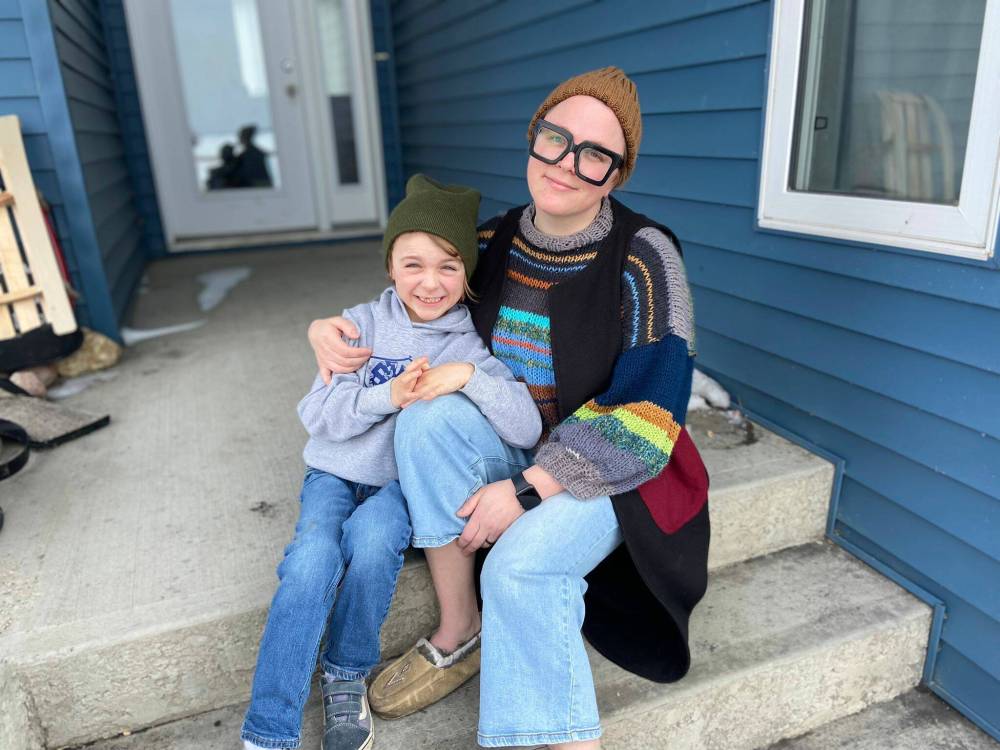
After a negative test, Hodgert went to work that day, March 16, but started to feel “terrible,” as she developed a fever, headache, congestion and the worst cough she has ever had.
“There were times I was coughing up so much phlegm I couldn’t breathe around it,” she said, adding if her case was considered mild, she shudders to think what a severe COVID infection is like.
As her daughter’s condition improved, Hodgert’s husband and son developed minor, sniffles-like symptoms.
Her dad, who has a chronic lung condition, was admitted to hospital for two days, because his oxygen level was low.
Hodgert and her husband are triple-vaccinated, while their son has had two doses. Their daughter isn’t eligible yet; the vaccine hasn’t been approved in Manitoba for children under the age of five.
Hodgert started to feel better about five days after she tested positive and, after a negative rapid-test result, returned to work — with a mask on — just before the start of spring break.
She was still feeling tired and occasionally coughing when she spoke to the Free Press.
The mother described her family’s experience as scary, stressful, exhausting and — thanks to the province’s decision to do away with health restrictions — frustrating.
She feels there should still be a mandatory self-isolation period for people who test positive; it was cut from 10 days to five for fully vaccinated Manitobans before the government ditched it altogether March 15.
The province now recommends people self-isolate for five days, but Hodgert said her father’s doctor advised him to do it for 10.
“It feels like the pre-pandemic pressures of, ‘Is it OK to work when sick?’ are trickling back in,” she said.
— Chris Kitching
Two days after Jenn Martens’ seven-year-old son tested positive for COVID-19, she put him in the car and rushed to Children’s Hospital emergency as he struggled to breathe. As soon as he recovered from a coughing fit, another would take hold.
“It was scary,” Martens said.
Health-care workers assessed the child, listening to his lungs and checking his vitals. To Martens’ relief, her son was taking in enough oxygen. They were given the green light to return home.

Martens, a 30-year-old administrative worker at a non-profit, also tested positive for the virus, as did her 10-year-old daughter, who got it for the second time after a bout in 2020.
The family’s symptoms included sore throats, runny noses, headaches and body aches.
She believes COVID-19 vaccines kept the family from becoming severely ill or needing to be hospitalized. Martens received her three vaccines as soon as she became eligible. Both kids have had two shots and are not yet eligible for their boosters.
Martens described her own symptoms as “not great, but not horrible.” The single mother, who lives with fibromyalgia and a suppressed immune system, says she’s fortunate to be able to work from home and hasn’t missed any shifts.
“Single-parenting in a pandemic has definitely been one of the hardest things I’ve done,” she said. “If I got really, really sick and I couldn’t care for my kids or couldn’t work, I don’t really know what I would do.”
Her primary concern moving forward is whether she or her children will experience long COVID symptoms.
“I think it is absolutely not a coincidence that we avoided COVID for two years and are getting it now almost exactly two weeks after all of the restrictions — specifically the mask mandate — have been dropped,” she said.
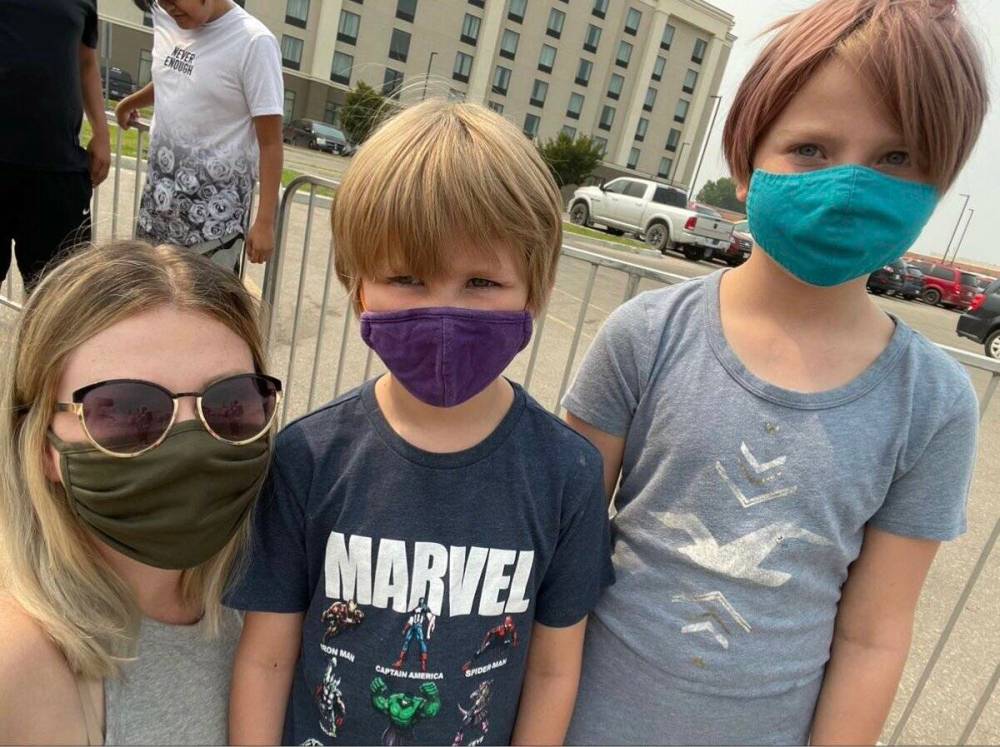
The family wears KN-95 masks every time they leave home. Martens believes her family did everything they could, within reason, to protect themselves. Martens has a 100-year-old grandmother she has visited just twice since the beginning of the pandemic.
Martens is at odds with the government’s handling of public-health information. She’s concerned there will be no way to know how many people are testing positive now that the province isn’t tracking and releasing the data.
“I know it’s anecdotal, but I know so many people right now that have COVID — more than any other point in the entire pandemic. Friends, family, so many people,” she said.
“How are people supposed to keep themselves safe if they don’t know what’s happening?”
— Katlyn Streilein
Cierra Bettens has watched an increasing number of people her age contract COVID-19 after two years of making sacrifices to keep themselves and others safe.
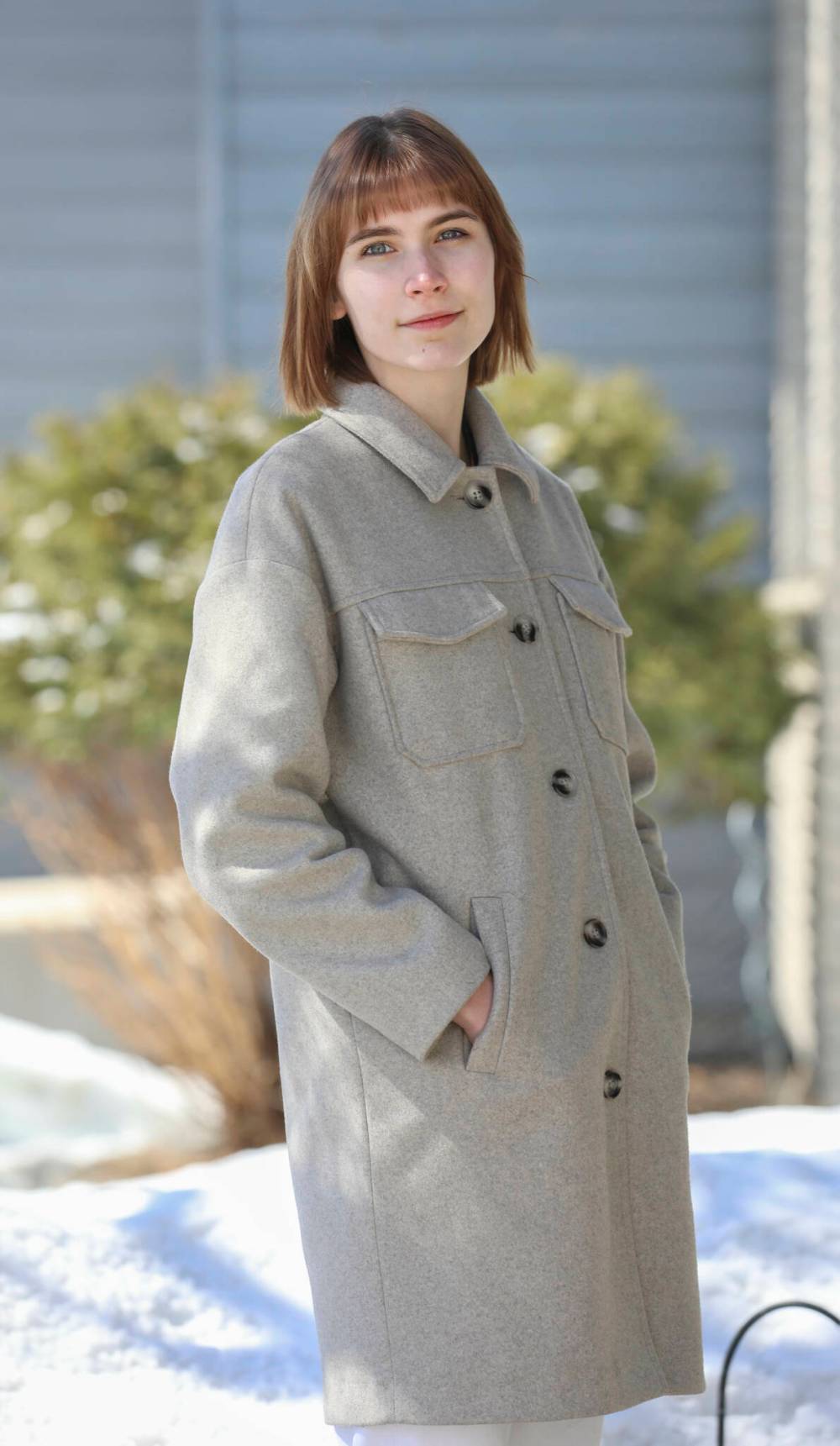
On Friday, she became one of them. The 21-year-old University of Winnipeg student and freelance writer doesn’t know where or when she was infected. She takes the bus and she went out for a drink with friends on the weekend.
She has used social media to help gauge the risk after public-health restrictions ended in March.
“Social media, basically, has become the way that you find out. From what I’ve seen, it does seem like we’re definitely in another wave,” she said. “When it started, I thought I was kind of one of the only people, but now I’ve seen so many people announce that they have COVID.”
She said there is no way to assess personal risk.
“I’m somebody who wanted to use that data to assess the risk of going out, and without that, I feel like I am really going into it blindly,” she said. “So it’s not super-surprising that I have COVID. But, obviously, I would have liked to have prevented getting it — it feels like it’s almost been a forced inevitability.”
She has a stuffy nose, a sore throat and she’s lost her sense of smell.
“It’s definitely not something I’d want to get multiple times a year, if that’s what the expectation is with the total opening of everything,” she said.
— Malak Abas
Pascale Nowicki and her husband decided to keep their five-year-old son, Walter, home from his Winnipeg school out of an abundance of caution after the province lifted its mask mandate March 15.
“We were pretty alarmed by the lack of masks being worn at school,” said Nowicki, 35.
She and her husband, Jay, 48, were doing what they felt was right. They were already isolating “as much as possible,” as they prepared to travel to visit a 94-year-old family member, who is at higher risk of a severe COVID outcome.
Despite the added precautions, Nowicki said, her son developed sniffles and tested positive March 22. The next day, he was vomiting and lethargic.
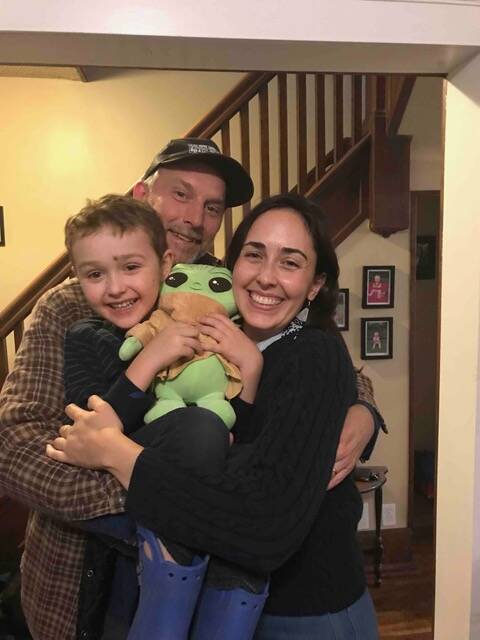
After cancelling the trip, her husband tested positive March 25, and Nowicki’s infection was confirmed last Tuesday, when she started coughing and felt congested.
Two days earlier, rapid tests were coming back negative, even though she was vomiting and “bedridden” with a severe migraine.
She said her husband’s symptoms have been like a “chesty cold.”
“Each of us has had very different symptoms,” said Nowicki. “It’s wild to see the range of symptoms and how different the experience in our household has been.”
The couple’s son “bounced back the quickest.” The family has been isolating at home since he tested positive.
Nowicki works as a home cleaner, and her husband stays home with their son full time.
She is using vacation pay while isolating, and is not getting paid for the days she is off work.
“It’s horrifying to see (the province) has pushed the science away.”– Pascale Nowicki
Nowicki has gone beyond the province’s self-isolation guidance, and her boss has been understanding and supportive, she said. She knows others may not be as fortunate, and she feels the province moved too soon to get rid of restrictions.
The government is “wilfully placing Manitobans in the dark” by ditching previous data collection and reporting methods, including daily updates on case counts, the positivity rate, hospitalizations and deaths, she said.
Nowicki sympathized with immunocompromised Manitobans, who are at higher risk of severe infection, and people who are on low incomes or can’t take any sick leave and may feel compelled to go to work despite being infected.
“Everyone’s just being pushed under the bus,” she said. “It’s horrifying to see (the province) has pushed the science away.”
— Chris Kitching
Wolseley resident Russell Morden — Russell, like the town in Manitoba, and Morden, also like the town in Manitoba, he jokes — thinks he contracted COVID-19 after playing recent a gig with his surf-rock band.
“I knew right away it was COVID,” Morden said, adding that each member of his band caught it.
He was sick at home for six days in mid-March and, like many other Manitobans who’ve tested positive recently, his symptoms included congestion and a sore throat.
The 51-year-old building engineer works for Manitoba Blue Cross, which requires staff to be symptom-free for at least 24 hours before returning.
The pressure he felt in his head made him second-guess whether it was time to end his isolation.
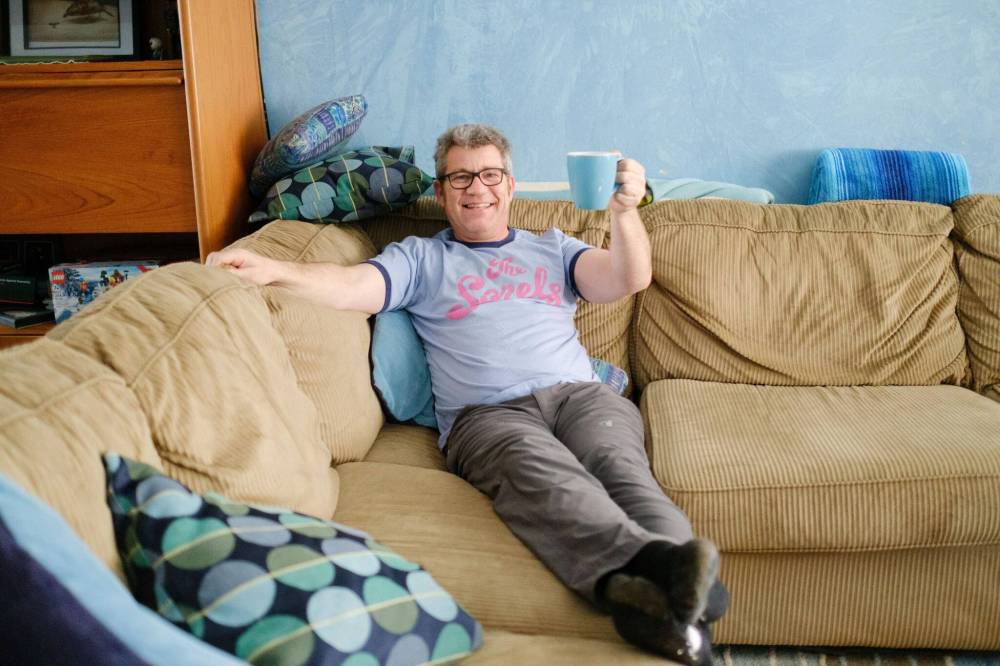
“Luckily, I work for a really good company,” he said. “I would have come back a day earlier, but COVID is a bit of a funny one — it seems to make you think you’re fully recovered, and then you have a setback.”
Morden credits his relatively mild symptoms to being triple-vaccinated.
“I put a lot of faith in these vaccines,” he said. “Up until I actually got infected, I kind of thought maybe the vaccines would prevent me from getting it at all.”
He got sick at almost the same the province lifted health restrictions.
“It’s still out there,” he said. “Just because we want to say it’s over doesn’t mean it’s over. It just seems like there’s certainly a lot of cases that I’m aware of among my peers and co-workers.”
The province’s decision to lift the mask mandate was premature, he said, adding many Manitobans are socializing indoors and bars are a hotbed for COVID with drinks flowing and raised voices fighting to be heard over loud music.
“The whole point of these restrictions is to protect our health-care system and protect our vulnerable folks in society, and that’s always been a good reason in my mind for these measures,” he said.
The province’s health-care leaders should be solely in charge of public-health measures — not politicians, he said.
— Katlyn Streilein
fpcity@freepress.mb.ca




